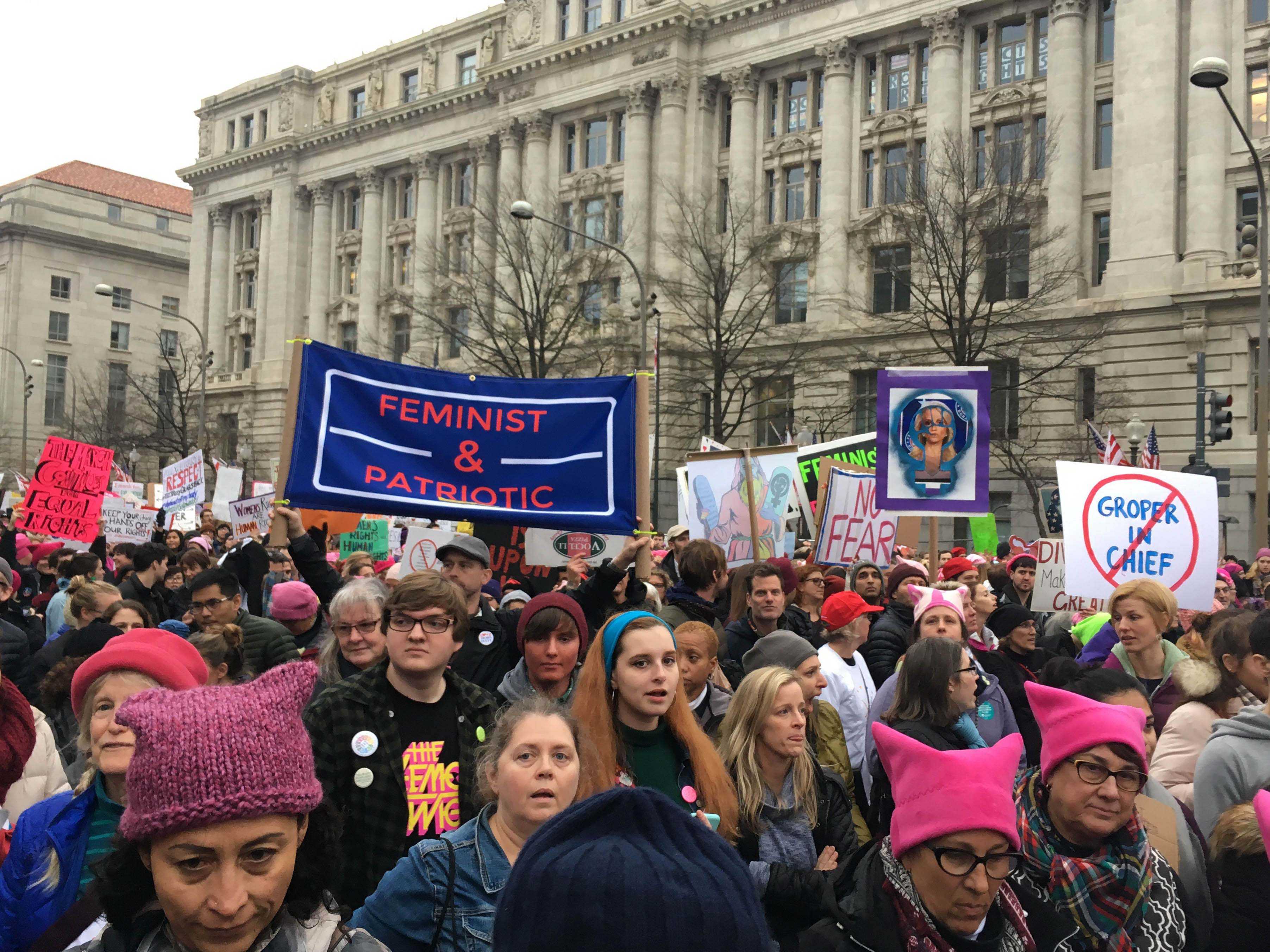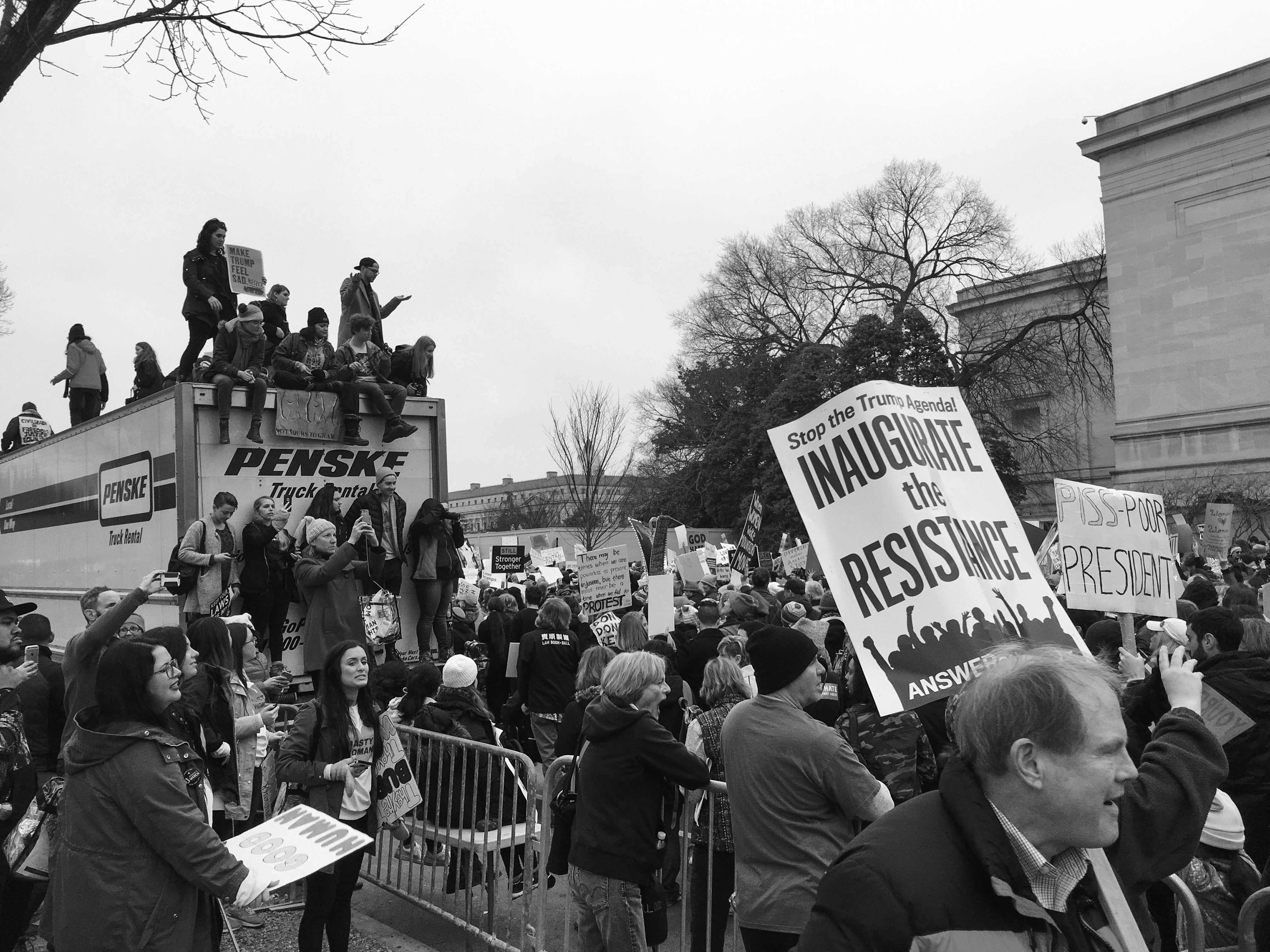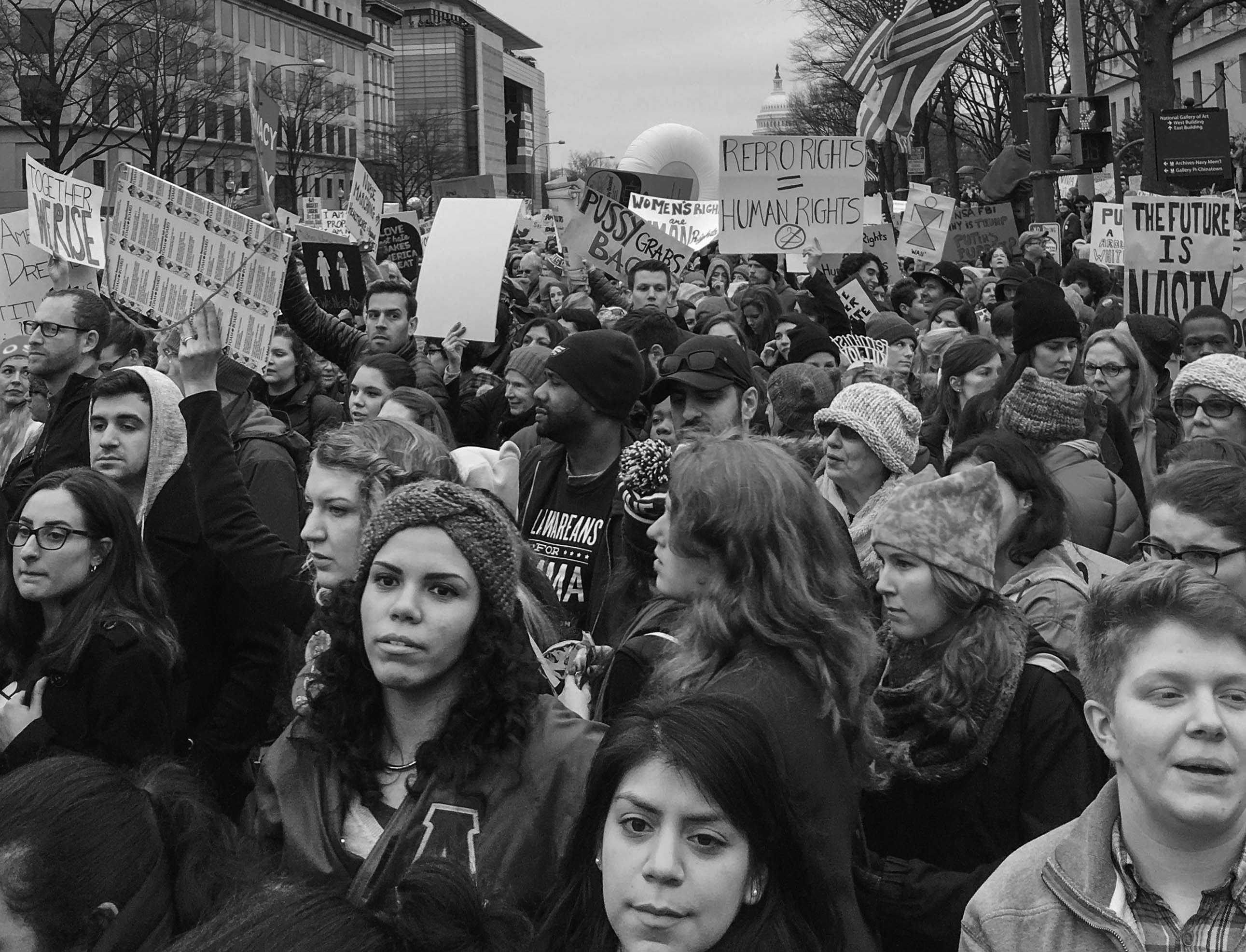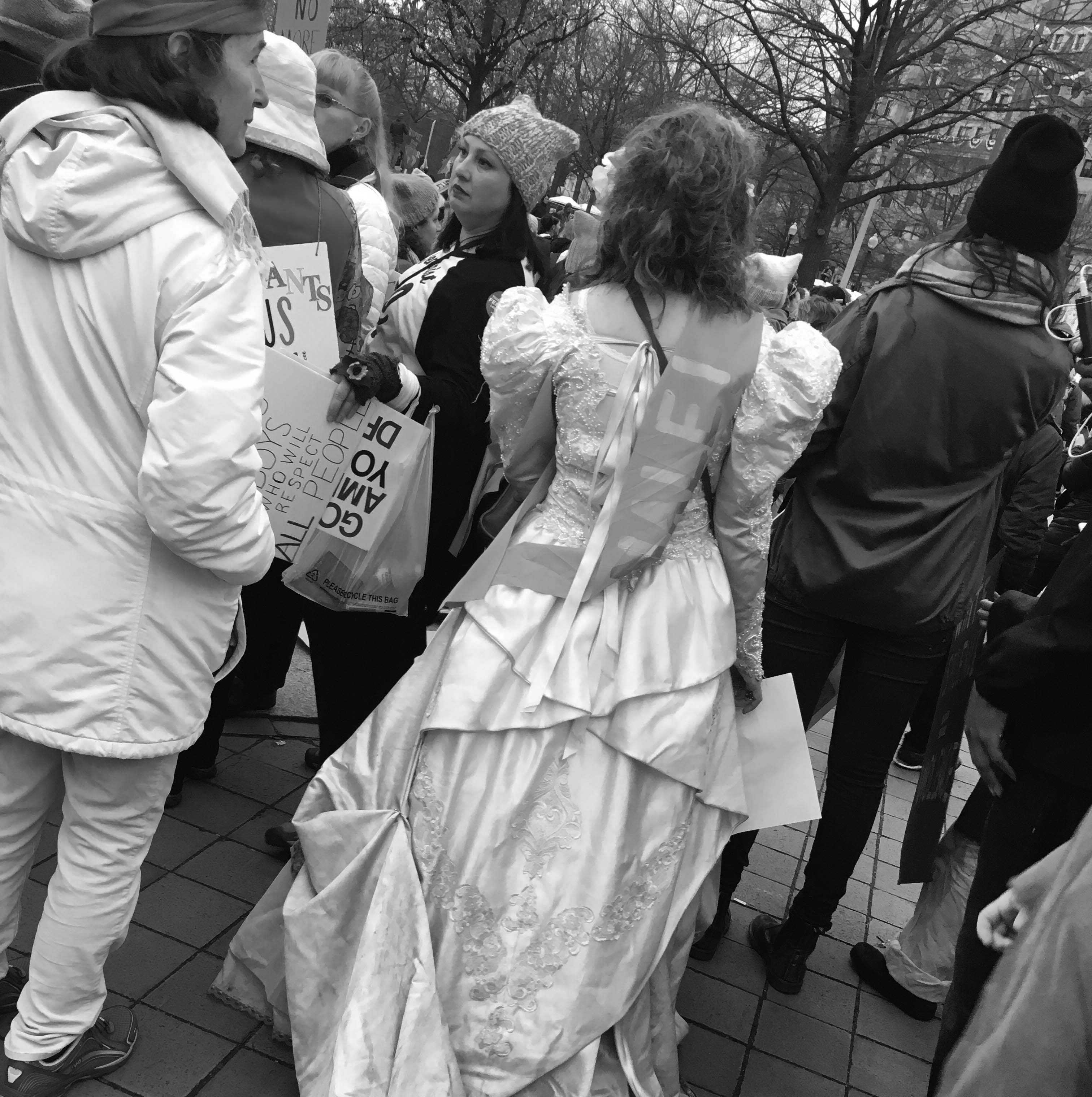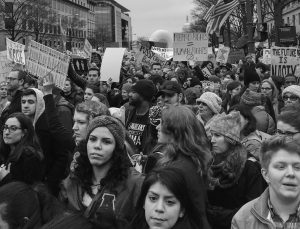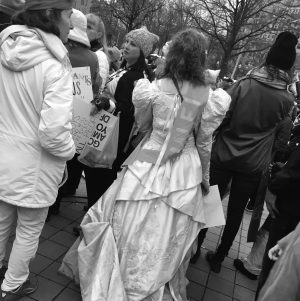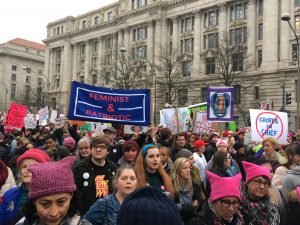D.C. Women’s March demonstrates unity
Jan 23, 2017
“If I get arrested, I’m going to be 934 miles away from you.” A strong side-eye glare from my mom ensued before she dropped me off in the parking lot of Coral Ridge Mall in Iowa City.
On Friday evening I hopped on a charter bus destined for Washington D.C. by myself. (Well, there were 55 other passengers that I would be riding with, but I didn’t know a single person.)
That’s when it dawned on me that I was about to embark on a 14-hour trip to an unfamiliar city with a bunch of strangers. I felt a combination of nervousness and excitement, which really manifested itself in the form of anxiety.
It’s difficult to capture the entirety of my experience in words, so I’m going to use two annoying arguments to guide my reflection. These arguments commonly come from my beloved fascist Facebook friends that wouldn’t mind a prohibition on protests.
First, they claim that protestors are unemployed and or lazy. Second, they say protestors are entitled, self-interested people.
Through firsthand observation and my own anecdotal experience, I’m going to explain why I disagree with both arguments.
Luckily, the uneasy feeling I had when I boarded the bus didn’t last long — I was quickly comforted with an overwhelming sense of inspiration. This came with the realization that I was in the presence of some exceptionally brilliant, hard-working, accomplished advocates and professionals.
My first encounter was with the woman I sat next to – a nurse practitioner at the VA in Iowa City, whose wife is a physician that has led successful research efforts on Multiple Sclerosis (MS).
The inspiration continued during group introductions. There were women, men,and children with significantly varied backgrounds and careers on that bus. In addition to several retirees and students, I met a pastor from Galena, a social worker from Cedar Rapids, an English Language Learners (ELL) teacher from the Iowa City Community School District and an engineer from Ames.
At the march, I met more educators, homemakers, OB-Gyn specialists and even exchanged several waves and fist pumps with business men and women looking down from their high-rise offices. (Some of these people even held up their own protest sign from their windows in lieu of physically attending the march).
Remember these people next time someone wants to claim unemployment against protestors.
I don’t feel the need to go into the reasons that these marches occurred. Those that don’t understand at this point are probably not reading this anyway.
I do, however, want to talk about this second notion of entitled protestors. I was able to directly talk with many of these individuals about the reason(s) they chose to travel far and wide to be present. It was really during these discussions that I felt most inspired by my fellow attendees.
When asked why they’re marching, I noticed that nearly every person I heard cited a motive that did not directly affect them. There were teachers concerned about their students’ immigrant families, mental health and medical professionals concerned for their patients’ access to services and men concerned for their female loved ones’ access to reproductive care.
I was moved by all of these accounts, but a few emotional testimonies from the bus especially stood out to me.
A middle school boy introduced himself and explained his fear of his parents being deported. He concluded his introduction telling me: “I just don’t wanna lose my parents.”
An Iowa City Community School District educator that assists in a federally-funded dropout prevention program emphasized the impact the Trump administration could have on her students’ academic viability.
A man from Missoula, Montana became emotional when speaking about his memories of when contraception was difficult to access and women were dying from “back alley abortions.”
The engineer from Ames works with renewable fuels and expressed concern over the Trump Administration’s stance on clean energy.
While in D.C., I ran into several Canadian protestors and spoke with them as we walked. I asked one woman why she was inspired to make the 12-hour trek. Her response was simple: “You’re our brothers and sisters.”
Remember these people next time someone wants to claim all protestors are self-interested and entitled. “Unity” isn’t commonly considered an emotion — I know it’s a noun that describes a joint of several parts. But despite my awareness, I can’t come up with another word to sum up how I felt this past weekend.
I’m convinced that I felt unity. Not only did I feel it when chanting things like, “no Trump, no KKK, no fascist USA,” “no hate, no fear, immigrants are welcome here,” or “welcome to your first day, we will not go away;” I also felt it when a woman by the name of Joyce, who I had never met, paid for my bus ticket, a cost that would have otherwise kept me from attending.
I felt unity when the woman next to me on the bus shared her blanket and food. I felt it when other attendees from Iowa took it upon themselves to find me when I got separated.
I felt it as I watched a woman across the bus aisle – who knitted hats for other riders – refused to accept compensation. I felt it when someone used their megaphone to help a mother find her daughter in this crowd of thousands.
And I felt it when I watched the news in the basement of a D.C. bar and saw that millions of people around the world had done the same thing as me that day.
They marched in solidarity — united — for those that are threatened by Donald Trump’s presidency.


